Safari Plus: The First High-End Charter Airline in Tanzania
Lauriano Balilemwa gives an overview of aviation company Safari Plus, the first high-end charter airline in Tanzania.
Interview with Lauriano Balilemwa, Accountable Manager of Safari Plus
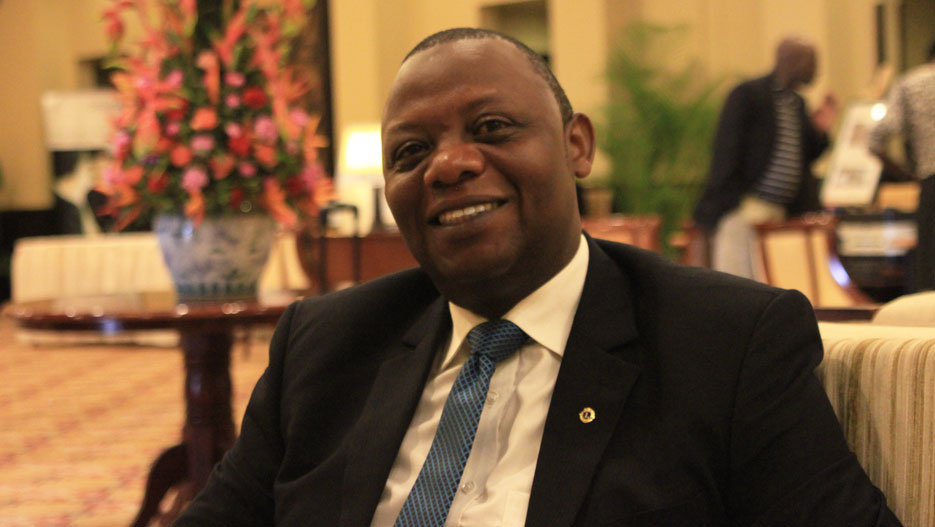
Safari Plus was founded to fly initially within Tanzania, starting with two luxury twin engine Beechcraft 1900s and one twin engine Beech King Air 350. That was the original fleet. Could you elaborate on your scheduled routes encompassing Dar es Salaam, Arusha and Zanzibar? How are you connected to the Kempinski hotels? Also, can you tell us about the luxury service that you offer?
Safari Plus was founded in 2009. The intention of the owner was to accommodate the kind of high end services that you get at the hotel; at that time it was the Kilimanjaro Hotel Kempinski. There was another hotel in Zanzibar which was called Zanzibar Kempinski and another in the Serengeti which was called Bilila Kempinski. Those three hotels were tourist centres. When you fly for tourism in Tanzania you have to reach Zanzibar for the beach and you have to go to the north to see the animals and to have the safari experience. The owner´s vision and strategy was to ensure better connectivity because there were no connections between Zanzibar and the Serengeti where you find the Seronera and Dar es Salaam. There are some general aviation operators but because of the nature of the business that they do, if you leave Dar es Salaam at 9am you will be in Seronera at 4pm. It means a whole day of travelling to move from place to place and on a small single engine caravan that is very worrying and tiring. So our owner wanted to come up with a brand and a service to offer to the high end tourist or client, for example someone who comes out of the Kilimanjaro Hotel and gets on a plane to fly to Zanzibar where he can maybe have breakfast and then fly on to Seronera. Zanzibar is just fifteen minutes and Seronera is one hour and 40 minutes. If you leave Dar es Salaam at 7am you can have breakfast in Zanzibar and then fly to Seronera where you can do a safari all day and spend the night in Bilila which was impossible before. That is the concept behind the creation of that triangle connecting the three destinations. This was not really on offer before and even if it was, the time was an issue, because people of that level were not interested in spending their whole day travelling because it would mean that they were too tired to enjoy the safari the next day. Just imagine going on a flight for 15 minutes in the air, ten minutes landing, then an hour later another flight, then another… a whole day flying is quite an exhausting experience. We wanted to provide a kind of bridge to make sure that the three points which are hot spots for tourism were connected. We used the twin engine Beechcraft 1900 which is pressurised, and has a stand up cabin with a two person crew to operate it and is a luxury configured plane. You ask what kind of service we give… we knew by the concept of the owner that the whole issue was to provide a service that was going to be for the high end client; the intention was that people would go out of the hotels and want a high end service just as they received in the hotel. We did that for 2 years, working the connection between Dar es Salaam and Zanzibar, Zanzibar and Seronera which is the Serengeti and then Seronera to Dar es Salaam once more. Between 2011 and 2012 we did that route with scheduled services. We would fly every day. We flew to Seronera three times a week because of the nature of the clientele that we had and we flew to Arusha daily and to Zanzibar every day. We were able to accommodate the market that was created by then. We were focused on tourism.
What were your passenger numbers annually?
From the beginning we went on the market vigorously and we had a top end clientele so we were coordinated with the top operators and travel agents. The 1900 aircraft is an 18 to 19 seater so we were taking groups. Sometimes we had 7 people and other times 10 or 15. After two months we saw considerable growth and we noted that our brand was doing well. People were seeing our brand in the market and the numbers were growing. Instead of going to Arusha once a day we started going twice a day and we increased our frequencies to Zanzibar to three times a day. This increased our output in order to meet the demand from the market.
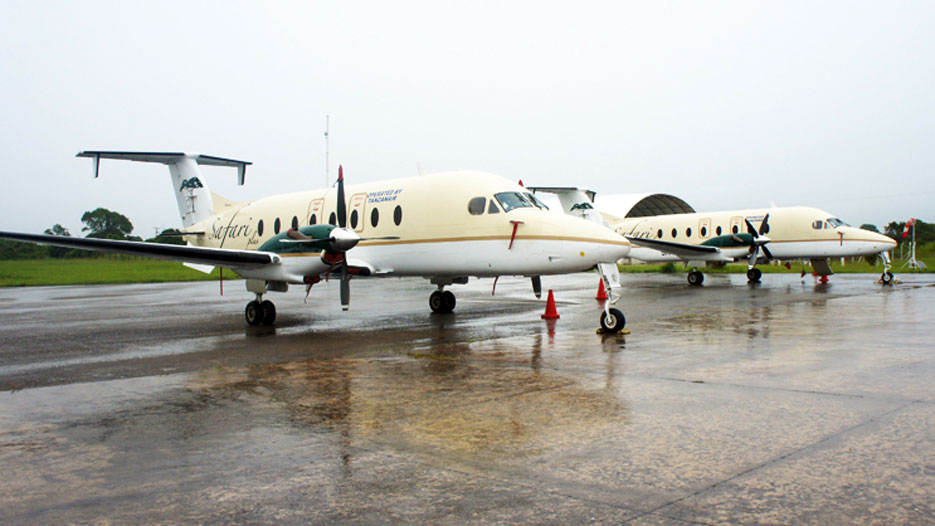
After 2012, you started to operate a complete fleet of jets and pressurised planes and helicopters. Can you tell us about some of your additional services other than the Safari flights in that triangle you mentioned? Are you seeing growth across the other chartered services such as medical flights and the helicopter business? How competitive is the chartered aviation sector?
We have three aircraft. We have a 1900 II, a 1900D and we have a King Air 350 which is complete luxury with leather seat covers, etc. You don’t find any other such product in the market; no one else has it in Tanzania. It is a very exclusive product.
I think it is very competitive but not at the level that it is expected to be; I think there is still a lot of room for more operators to be involved and to engage in this. We have seen a shift in demand from the clients, because most of the clients now come with certain conditions from an insurance point of view and from their travel booking, so they want a twin engine because of safety issues and so this means that the caravans are still in the market and they are currently the biggest operator but slowly the demand is shifting from a single engine to a twin engine because of the safety issue. I think the market is still wide enough for more players to come in and prove themselves. When we came into the business in 2012 and when we started with the chartered services, it was a new thing, there was one other company doing it and I didn’t know them very well, they were Tanzania Service Limited and they weren’t doing scheduled flights just unscheduled services. They were a specialised charter operator and they had a very specific clientele. They were not going for tourism because they were dealing with a different sector. Once we came in and started to tap the market of tourism, corporates, the mining sector, etc., everyone started to realise that there was potential in this kind of business mode and people started to come in.
How big is the total fleet?
We have three aircraft. We have a 1900 II, a 1900D and we have a King Air 350 which is complete luxury with leather seat covers, etc. It is the kind of plane for a nice face to face meeting. It is called a crab seating configuration. You don’t find any other such product in the market; no one else has it in Tanzania. It is a very exclusive product.
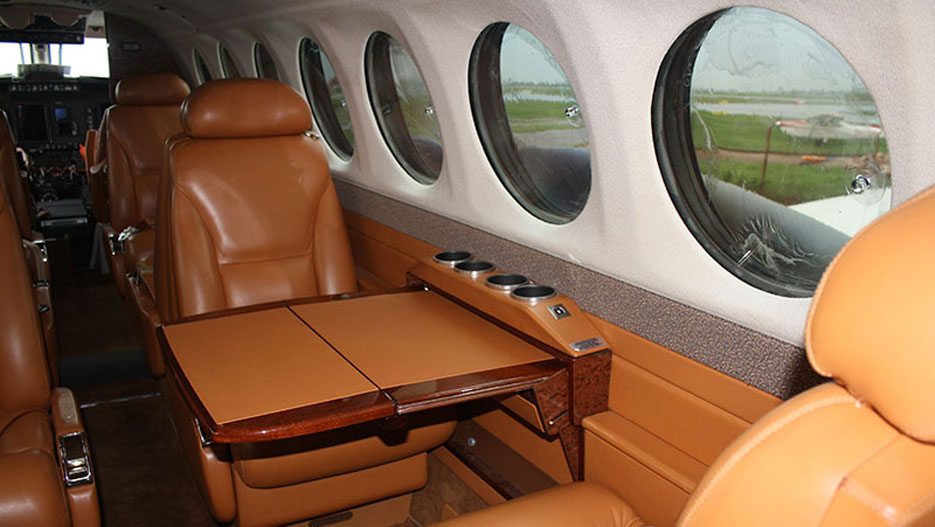
How does Safari differentiate itself from the other players?
There are two types of services that are provided here, we have the non-scheduled services and the scheduled services. The other competitors all offer just scheduled flights. When they say they are leaving at 7am, they are leaving at 7am. There are a lot of challenges with that because if you don’t leave at 7am then it means you have disappointed your client because they expect to arrive somewhere at a certain time. If you don’t depart on time it is a disappointment. The kind of client that has to get somewhere for a meeting needs to be sure that they will arrive on time. They want to look for non-scheduled flights and that is the kind of service that we are providing. We are no longer looking for the kind of client that wants to be on a scheduled flight. We want clients who have their own schedules and want us to suit their needs so that they can book and pay for a flight and travel whatever time they want. Those kinds of corporate are the clients that we are looking at. That differentiates our product.
Do you think that Tanzania Tourist Board (TTB) should focus now on diversifying the industry by expanding into different geographic options which are thus far relatively unexploited in Tanzania to meet the expectations of a broader range of tourists coming here such as cultural and business tourism? Obviously there is a focus on the northern circuit and the southern circuit and there are a lot of underexploited resources that are somewhat overlooked.
I think you are right. This country is completely endowed with a lot of resources and a lot of historical sites and nature. Every region could be a tourist centre. There are some areas where people don’t go such as Lindi and Mafia. I think the focus has been on the animals and the safaris but if you go to Ruaha and some of the other National Parks, there is natural warm water and springs for example. You can see how the people there have lived for centuries, which is very interesting for tourists. If you go to Mwanza there are a lot of traditions to see. We do need diversification to see more than just the animals and to see more of the culture that this country has been endowed with. There are so many historical and cultural sites that are extremely interesting for tourists from all over the world. We have one program which is run by the TBC, the national broadcasting corporation, where a guy shows how diverse our country is and everything is a marvel. I think Tanzania Tourist Board (TTB) should diversify the offer in the near future to see how much further they can go.
What more do you think they could do to lure more of the tourists that currently go to Kenya and Uganda in larger numbers?
I think you know of that famous mountain climber who died while climbing the mountain? Someone put that online and said that he was climbing Mount Kilimanjaro of Kenya, but Kilimanjaro is not in Kenya! So that tells you how much people are unaware of Tanzania.
You would be amazed because that it often a misconception.
I believe that Tanzania Tourist Board needs to build awareness of the things that Tanzania has to offer. That will make a lot of difference. When you travel out of the country people always ask you the same thing, “are you close to Mount Kilimanjaro in Kenya?” and I say “no, Mount Kilimanjaro is in Tanzania” and they are surprised.
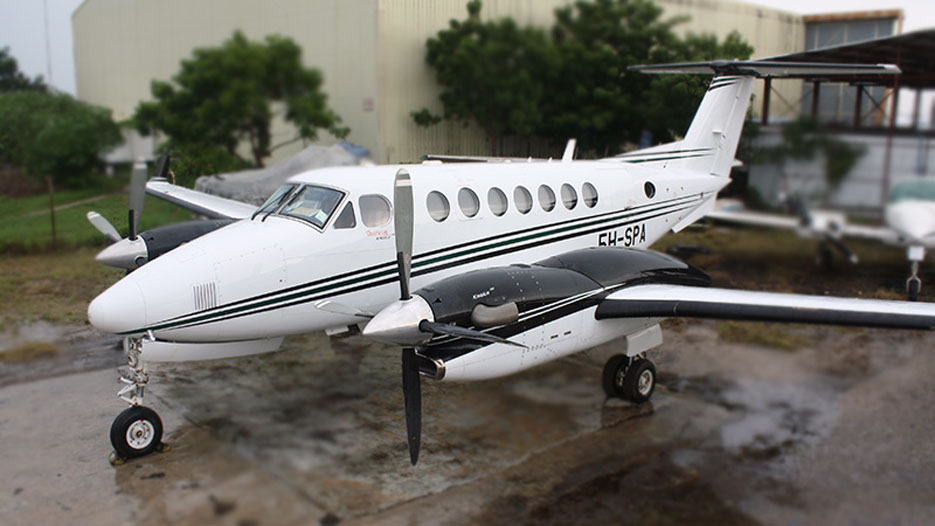
Would you say that they aren’t doing enough to brand Tanzania?
Yes. I think they need to do more. With everything nowadays being online I think they can do more to make our country known. We have a lot to offer to the world. When you travel abroad, many people think Africa is a country but we are individual nations and we have our own resources, uniqueness and culture. I think we need to create a lot of awareness in Europe and America so that they know what we have to offer.
Why do you think tourism in Tanzania is so much more expensive than in Kenya?
That is a very interesting question. Do I know the answer? I don’t think so! I have a friend who has a cousin in Greece and he wanted to come to Tanzania and so he asked for the tourist package and was amazed at the price. He said for half the price he could travel through Europe. I wonder how this can be. I think many people don’t think that tourism in Africa will be expensive. I think it is a matter of the policy makers and the industry players. I think we need to entice people to come. One of the ways to do that is to categorise, so you need to see if you want the masses or people who will pay more. I believe if we lower our charges and our hotel expenses etc. it will obviously lower the cost of tourism in Tanzania. Additionally it is very expensive to operate if you just have 10 visitors in a year but if more people come you can see more turnover. It is expensive to travel from Dar es Salaam to Seronera, even more than it is to travel from Dar es Salaam to Dubai, and people asked why? Because to Dubai you can travel comfortably with Emirates for 600 dollars but to go on safari it is a short flight but costs 700! But that is the way the market is set. I think there are a lot of factors and variables regarding the cost of tourism in Tanzania and in Africa at large. I think the attitude does need to change, not everyone who travels is rich, there are people who are on a budget but still want to travel and see the culture.
The notion of safari tourism in Tanzania is that it is very much a premium option.
Yes it is a premium option. It is not just about the government and policy makers, you also need to look at the tour operators in Europe. I think they are making the Tanzanian package more expensive than it should be. Everyone is trying to make money out of it. This is because of a lack of information. People travel here and ask “can I go to Mafia in 20 minutes by car?” but it is 1 hour from Dar es Salaam by plane! The information is missing; if we provide the right information to the people, we can quickly lower the cost of tourism. You can go to Ngorongoro Conservation Area in one day and spend maybe just 100 dollars. But people don’t have that information and so they go to a tour operator and pay an agent who will want to make profit from them. One of the ways to lower the cost is to share more information.
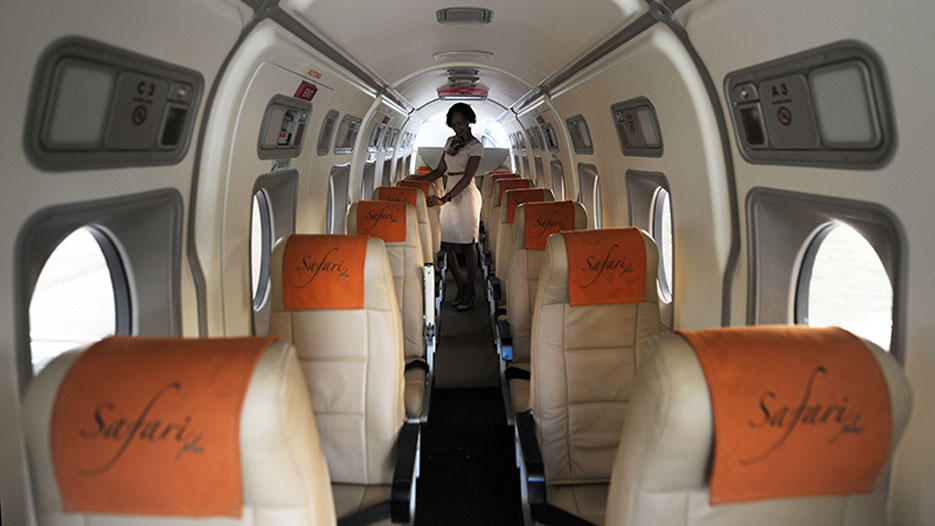
I wanted to ask you about some of the upscale international hotel chains because you have the connection with Kempinski. Do you think that they are capturing too much of the gains from the tourism sector in comparison with the local operators? Do you think there is not sufficient trickle down?
Of course. These hotel chains move their clients. I think it depends on the level of services that these multinational chains provide because the local providers can’t offer the same level and even if they could, they can’t put themselves out there so that people know their services. They don’t have branding. I have been to countries where the service is not as good as what you can find here locally, but they have the branding. I believe this is an opportunity rather than a challenge, for the local sector to see how they can create their own branding and develop their standards and create awareness. People are doing that in the National Parks; most of the National Park hotels are run by locals. They need to create the awareness that they provide a certain level of service.
What do you think the Tanzanian government can do to attend to some of the negative environmental and social effects that are an inevitable consequence of a booming and successful tourism sector?
I am not sure of the negativity that exists. I know that recently there has been a lot of discussion regarding the introduction of VAT on the tourism sector. I don’t have much data on it so I am sceptical to comment. At the end of the day the VAT is paid by the consumer so obviously it is increasing the cost of tourism but people need to know that for the government to be able to operate it needs resources as well and a source of revenue and that revenue has to come from different sources and one of those sources is tourism. I believe Tanzania Tourist Board should be able to coordinate with the tourism operators and come up with something that can benefit both the consumer and the country in terms of revenue. We don’t want to lower the number of tourists to Tanzania or create a negative image, because the country has a lot of advantages such as political stability and peace, but if we have one negative image then it becomes known around the world and some other parties can take advantage of that. I think we need to be careful as operators not to spread negativity regarding the VAT. We don’t want to scare away the tourists who want to come to Tanzania. We want the tourists to have the right information to be able to make the right choices.